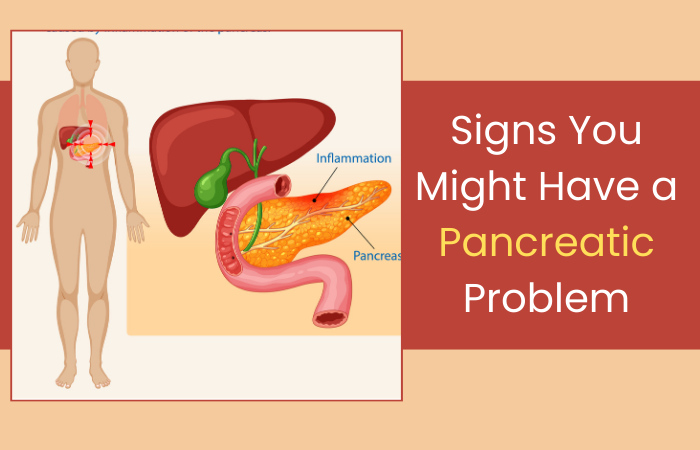
Signs You Might Have a Pancreatic Problem
An essential organ situated beneath the stomach, the pancreas is involved in both blood sugar management and digestion. It creates hormones like insulin that control blood sugar levels and enzymes that aid in the breakdown of meals. Unfortunately, serious health issues including pancreatitis, pancreatic insufficiency, and even pancreatic cancer can result from the pancreas not working correctly.
Understanding the symptoms of pancreatic problems is crucial for prompt diagnosis and successful treatment. Complications may arise if symptoms are ignored or medical attention is put off. This article will discuss the main symptoms of pancreatic issues and the importance of seeing Dr. Suresh Jain, the top stomach specialist in Pune, at the Digestive Endoscopy Clinic.
Common Signs of Pancreatic Problems
1. Persistent Abdominal Pain
Pain in the upper abdomen is a hallmark symptom of pancreatic problems. The pain may radiate to your back and worsen after eating or lying down. This type of discomfort is often associated with conditions like pancreatitis or pancreatic cancer.
2. Unexplained Weight Loss
Losing weight without any changes to your diet or exercise routine could indicate pancreatic issues. The pancreas may not be producing enough enzymes to digest food properly, leading to malabsorption and nutrient deficiencies.
3. Nausea and Vomiting
Frequent nausea and vomiting, especially after eating fatty meals, can signal a problem with your pancreas. It may indicate an inability to break down fats, a condition commonly seen in chronic pancreatitis or pancreatic insufficiency.
4. Changes in Stool
Pancreatic problems often lead to oily, pale, or foul-smelling stools. This occurs because undigested fats pass through the digestive system due to a lack of pancreatic enzymes.
5. Jaundice (Yellowing of Skin and Eyes)
Jaundice is a common symptom of pancreatic cancer or bile duct obstruction caused by the pancreas. It results from a buildup of bilirubin, a yellow pigment in the blood.
6. Loss of Appetite
A reduced desire to eat is a nonspecific symptom that can be linked to various pancreatic conditions, especially pancreatic cancer. Persistent loss of appetite warrants immediate medical attention.
7. Diabetes Development
If you develop diabetes suddenly, especially in middle age or without a family history, it could be a warning sign of pancreatic issues. The pancreas may not be producing sufficient insulin, leading to high blood sugar levels.
8. Bloating and Indigestion
Frequent bloating, gas, or indigestion could point to poor pancreatic function. These symptoms often accompany malabsorption issues caused by insufficient enzyme production.
Causes of Pancreatic Problems
Several factors can contribute to pancreatic issues, including:
- Gallstones: These can block the pancreatic duct, leading to inflammation.
- Alcohol Abuse: A common cause of chronic pancreatitis.
- Smoking: Increases the risk of pancreatic cancer.
- Genetic Factors: Certain genetic conditions can predispose individuals to pancreatic problems.
- High-Fat Diet: Overconsumption of fatty foods can strain the pancreas.
When to See a Specialist
If you experience any of the symptoms mentioned above, it’s crucial to consult a medical expert. Delaying diagnosis and treatment can worsen the condition, leading to complications such as chronic pancreatitis, diabetes, or cancer.
A stomach specialist can conduct diagnostic tests such as blood work, imaging studies, and endoscopy to identify the root cause of your symptoms and create a treatment plan tailored to your condition.
How Pancreatic Problems Are Diagnosed
- Blood Tests: To check for elevated levels of pancreatic enzymes.
- Imaging Tests: CT scans, MRI, or ultrasound can help visualize the pancreas and detect abnormalities.
- Endoscopic Procedures: Advanced techniques like ERCP (Endoscopic Retrograde Cholangiopancreatography) are used to evaluate pancreatic ducts.
Managing Pancreatic Problems
Treatment depends on the specific condition but may include:
- Medications: Enzyme supplements, pain relievers, and insulin therapy.
- Lifestyle Changes: A healthy diet, quitting smoking, and reducing alcohol consumption.
- Surgical Procedures: For severe cases, surgery may be required to remove blockages or tumors.
Why Choose Dr. Suresh Jain at Digestive Endoscopy Clinic?
If you are experiencing any signs of a pancreatic problem, it’s essential to consult a trusted expert. Dr. Suresh Jain, the best stomach specialist in Pune, is highly experienced in diagnosing and treating a wide range of digestive and pancreatic issues.
At Digestive Endoscopy Clinic, Dr. Jain uses advanced diagnostic techniques and a patient-centered approach to provide accurate diagnoses and effective treatments. Whether you’re dealing with pancreatitis, pancreatic insufficiency, or other gastrointestinal concerns, you can count on Dr. Jain for compassionate care and professional expertise.
